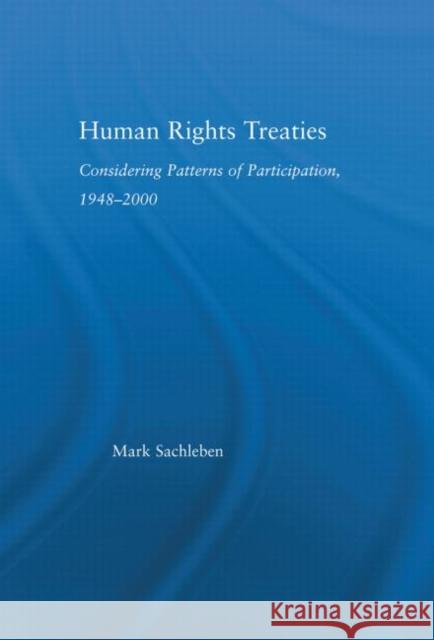Human Rights Treaties : Considering Patterns of Participation, 1948-2000 » książka
Human Rights Treaties : Considering Patterns of Participation, 1948-2000
ISBN-13: 9780415977739 / Angielski / Twarda / 2005 / 257 str.
Human Rights Treaties : Considering Patterns of Participation, 1948-2000
ISBN-13: 9780415977739 / Angielski / Twarda / 2005 / 257 str.
(netto: 676,35 VAT: 5%)
Najniższa cena z 30 dni: 654,86
ok. 22 dni roboczych.
Darmowa dostawa!
The book examines patterns of participation in human rights treaties. International relations theory is divided on what motivates states to participate in treaties, specifically human rights treaties. Instead of examining the specific motivations, this dissertation examines patterns of participation. In doing so, it attempts to match theoretical expectations of state behavior with participation. The conclusion of this study is that the data suggests there are multiple motivations that lead states to participate in human rights treaties. The book is divided into five substantive chapters. After an introduction, the second chapter examines the literature on why states join treaties in general, and human rights treaties in particular. The third chapter reviews the obligations states commit to under the fifteen treaties under consideration. The fourth chapter uses basic quantitative methods to examine any differences in the participation rates between democratic and non-democratic states. The fifth chapter examines reservations, declarations, and objections made in conjuncture with the fifteen treaties. The chapter employs both quantitative and qualitative methods to determine if there are substantial differences between democratic and non-democratic states. Finally, the sixth chapter examines those states that participate in the most human rights treaties to determine if there are characteristics that help to identify these states. Additionally, the chapter examines and evaluates theoretical predictions about participation.











